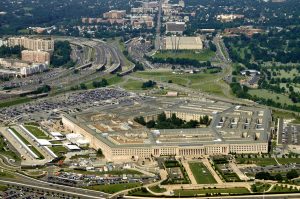
The phrase "Supply Chain" may make you immediately think of retail giants like Amazon and Walmart or manufacturers like GM and John Deere, but government is highly reliant on security supply chains. A supply chain is the network of all the people, organizations, resources, activities and technology involved in the creation and sale of a product. It encompasses the delivery of source materials from the supplier to the manufacturer, to its eventual delivery to the end user. In government, supply chains have come front and center with the Trump administration's rulings banning government use of products from certain Chinese manufacturers citing security concerns that products could contain ways for the Chinese to spy on the U.S. Companies selling technology to the government have to be able to trace the source of all elements of their products to ensure nothing originated with the banned distributors.
Being able to do this requires a mature supply chain process and solution. Interagency committees have been established to determine best practices in securing increasingly complex supply chains. Understanding supply chains is an expensive undertaking and one survey found that small and mid-sized businesses are opting out, counting on the fact that they will not be the ones called out to defend their supply chain to government. This mentality may not be an option for long.
DoD is getting more and more prescriptive in their security and supply chain guidance, adding the review of contractor purchasing systems as part of bid reviews. GSA has also explored banning the use of refurbished IT, since that includes products where a supply chain cannot be re-created.
The rules and regulations around supply chains can seem just as complex as the chains themselves. Luckily, it's a topic of discussion at a number of upcoming events.



